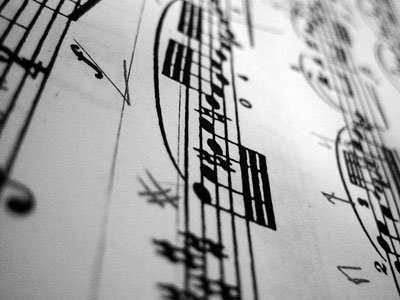All Nonfiction
- Bullying
- Books
- Academic
- Author Interviews
- Celebrity interviews
- College Articles
- College Essays
- Educator of the Year
- Heroes
- Interviews
- Memoir
- Personal Experience
- Sports
- Travel & Culture
All Opinions
- Bullying
- Current Events / Politics
- Discrimination
- Drugs / Alcohol / Smoking
- Entertainment / Celebrities
- Environment
- Love / Relationships
- Movies / Music / TV
- Pop Culture / Trends
- School / College
- Social Issues / Civics
- Spirituality / Religion
- Sports / Hobbies
All Hot Topics
- Bullying
- Community Service
- Environment
- Health
- Letters to the Editor
- Pride & Prejudice
- What Matters
- Back
Summer Guide
- Program Links
- Program Reviews
- Back
College Guide
- College Links
- College Reviews
- College Essays
- College Articles
- Back
Music and Success (Take Notes)
Th-thump, th-thump, th-thump. My heart races as I enter the stage. I sit down and take a deep breath. My first note is thick and confident, and the notes that follow seem to fill the church's hollow structure. Each note rings and echoes with its own unique sound and vibration. I gradually approach the climax of the piece. One note, two notes, three notes, four, five, six - then, I explode.
Just as quickly, however, I disappear once again. I can feel the tension in the air as I hold on to my very last note, but the silence is sweet. Applause explodes into the air as I lower my arms, signaling the conclusion of the performance. My heart is racing just as fast as it did when I walked onto the stage.
From the second I walked off the stage that night, I knew the exhilaration, the rush of adrenaline I felt, would be difficult to relive. The excitement and pure joy of the performance were nothing like the energy I felt after successfully giving a presentation in class or completing an important exam. After nearly ten years of molding the cello into my life, I began to question myself: Just what made playing an instrument so different?
One does not need to study music privately in order to understand the profoundness of its power. It speaks as a language in itself, a language that tells the stories of composers, performers, and listeners alike. A piece tells a different story for everyone, yet still finds a way to weave the numerous stories together.
Having started the cello at an age when I thought the word was spelled with an “h,” I find it nearly impossible to imagine a life without it. From the early days of struggling to practice for even thirty minutes, I now find myself looking forward to sitting down for an hour or two every day and diving into the worlds of Bach and Haydn. Interestingly, this anticipation took me years to find.
More than anything, I need to thank my experiences of music training for teaching me the arts of discipline, concentration, and perseverance. These are the very lessons I apply to anything and nearly everything I do in school. Yes, sitting down for a few hours in a cramped room, fumbling over notes and rhythms, and occasionally wanting to impale the instrument with the nearest sharp object does not seem all that appealing. Yet, once you’re able to get past the technical difficulties (literally), you simply create. You force yourself to look beyond the obvious notes and dynamics and make what the composer has offered you your own.
Training also forces you to be brutally honest, both with yourself and the music. If you haven’t practiced enough, that’s simply all there is to it. You’ll find no luck in trying to cover up mistakes with exaggerated dynamics or excessive musicality. Eventually, you realize that unless you put in the dedication and the hours, whatever comes out of your instrument will merely be sound, which really is quite different from music.
Perhaps the most rewarding aspect of music training is a realization of the value of being part of a collaborative effort. Having to play in any ensemble or orchestra, no matter what size, is quite a challenge. As a member of the group, you are expected to perfect your part to the best of your ability, no matter how minimal it may seem. The pressure is quite healthy, however. You learn to listen not just to yourself but to those around you, to every melody and harmony that is working together.
Music training in any form has the ability to sharpen some of the most valuable qualities, including collaboration, and the ability to listen and connect seemingly contradictory ideas. As someone who has gone through both middle school and high school playing a string instrument, I am well aware of the general perceptions or even stereotypes others may have of those who are involved in any sort of music programs, such as band or orchestra. Music may not make you a prodigy or even a better person. However, it forces you to think differently and channel your experiences, your thoughts, and your wisdom into a language that speaks for itself.

Similar Articles
JOIN THE DISCUSSION
This article has 0 comments.
